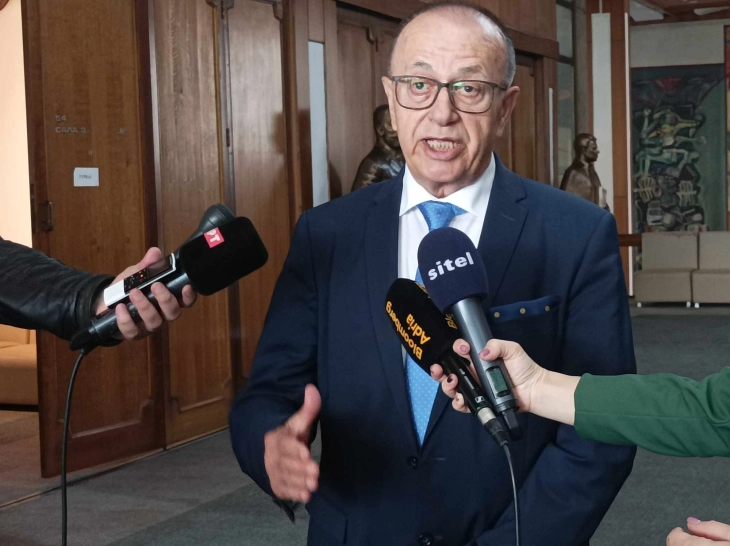Fiti: Disciplined fiscal policy for high price, macroeconomic and financial stability
- Accelerating of the economic growth and development, resumption of the EU integration process and the fight against corruption are the three key priorities the new government should focus on, said academic Taki Fiti on Wednesday in Skopje.

Skopje, 29 May 2024 (MIA) – Accelerating of the economic growth and development, resumption of the EU integration process and the fight against corruption are the three key priorities the new government should focus on, said academic Taki Fiti on Wednesday in Skopje.
He stressed that reforms must continue and, as he said, a wide-ranging front in the fight against grey economy must be opened.
Speaking to members of the media ahead of the scientific panel discussion on the macroeconomics after the 2007-2009 recession at the Macedonian Academy of Arts and Sciences (MANU), Fiti fell short of commenting on the announced one-billion-euro loan saying information is scarce yet.
Regarding inflation, he said that monetary and fiscal policy must be coordinated. If there is lack of fiscal discipline and if the budget spends a lot, Fiti said, there is no central bank that could prevent inflation. Here, he said, we have a problem – big budgetary deficits due to the crisis, major expenditures, raise of the average and minimum wage outside of the productivity trends, major export dependence and inflation higher than the countries in the region,…
“We cannot maintain high price, macroeconomic and financial stability without a disciplined fiscal policy. The new government has to focus on it. Its priority should be, primarily, to accelerate the economic growth and development, secondly, to resume the EU integration process, and thirdly, to focus on the fight against corruption. These are high on the agenda of the new government,” said Fiti.
The budget, he added, is in bad shape.
“The debt is high, we should open a wide-ranging front in the fight against grey economy. It holds a great potential to increase budget revenues so the government can manage the fiscal policy easily, which in turn can facilitate coordination with the monetary policy,” stated the Macedonian academic.
According to him, the key challenges of the Macedonian economy are related to the events following the 2007-2009 crisis. “The 2007-2009 crisis in the EU transformed into a debt crisis, followed by a euro crisis. The EU is crucial for us because it is an important region for import and export and also because the denar course depends on the euro. The world was in a lockdown during the Covid-19 pandemic immediately before the energy crisis hit.”
“After 2008, Macedonia lost the fiscal space. Until 2007, there was 23% participation of the public debt in the GDP, which rose to 26% in five-six years. Today, as a result of the two crises, public debt is over 60%. The question is whether and if it is sustainable, what we should do to be sustainable and which fiscal rules are applicable,” said Fiti.
He called on the Fiscal Council to control how budget funds are spent, whether and to which extent basic budget rules are respected – debt to not be over 60%, budget deficit to be lowered to two to three percent and the country to achieve a normal level of indebtedness in five-six years’ time,…
Today’s scientific discussion is organized by the Ksente Bogoev Center for Strategic Research at MANU.
Photo/video: MIA







